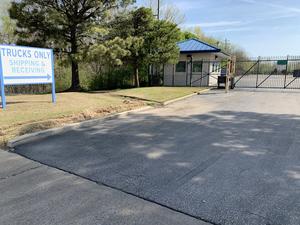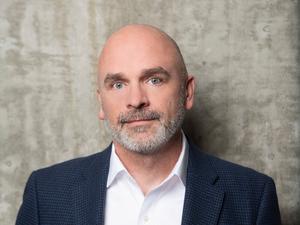
For 15 years, Scott Casey worked as the chief technology officer for EdR, the Memphis-based developer and owner of collegiate housing that was acquired by Greystar Collegiate Housing in 2018.
And during that time, as he learned about the company’s various facets, Casey recognized the need for more information about a building’s connectivity quality.
“I understood every aspect of that business — construction, development, operations, ownership, the finance side of things,” Casey said. “That’s what’s helped me figure out what areas we need to address to solve problems. And this was a big area.”
Now, through a new startup, Casey is addressing that area head on.
He’s the CEO and president of ROVR Score, an independent evaluator of buildings’ Wi-Fi and cellular connectivity quality. The company is currently focusing on multifamily housing, though it hopes to eventually branch out into the hospitality sector.
“Think about credit scores, FICO scores, CarFax, things like that,” Casey said. “We’re providing a tool for our customers … to understand the quality of the connectivity inside their buildings.”
The primary clients for ROVR Score are building owners and operators, and the company is starting by targeting the student housing industry, which Casey believes has the most need for it. It's also in discussions with representatives of conventional apartment complexes.
To help owners understand the connectivity quality of their buildings, the startup pulls in data in four categories — or, as Casey calls them, pillars.
The first is related to a facility’s interior infrastructure: What kind of technological equipment, wiring, and bandwidth does it have? What’s the quality and age of the equipment?
The second pillar focuses on Wi-Fi connectivity. ROVR Score puts a sensor inside the building that does nothing but gather data on the quality of online speeds, download speeds, and connect times. For example, it looks at how long it takes to get to certain websites.
The third pillar uses an algorithm to measure the quality of cellular connectivity, while the fourth compiles resident reviews that are online. If they find mostly positive reviews, that property will get a good score. But, if they find negative ones, it will get a poorer score.
The business then comes up with an overall score — ranging from zero to 100 — based on the four pillars. So, if a building has a score below 70, which is beneath ROVR Score’s benchmark, clients can see which area is bringing them down.
Customers have access to all of the information, and the score can change, as the company is constantly pulling data in. Casey expects it to be popular with property owners and operators, especially when the stakes can be high.
“This is going to make them better, and help them make more proactive and informed decisions as it relates to the building,” he said. “If you don’t do a good job in that area, you could lose 10% to 20% of occupancy, and if you get a bad reputation in that market, it gets four years to get over it.”
The data is also useful for prospective tenants, as they can look at scores when selecting a place to live. And even in the early stages, the company is beginning to gain traction.
According to Casey, ROVR Score recently scored its first client, a student housing and operator based in Raleigh that comes with 65 properties. They have several other commitments, too, and by the end of the year, he anticipates ROVR Score will be used across 1,000 different properties.
This is not, however, a company Casey plans to run decades from now. The hope is that the business — which currently has three staffers and is adding a fourth — will continue to gather data and grow.
Then, around five years from now, Casey and co. plan to start looking for a potential buyer.
“I’m trying to build a legacy; I’m on my last hurrah as it relates to working,” Casey said. “[Five years from now] my hope is that we’ve provided a tool for identifying the quality of Wi-Fi and cellular connectivity for single and multifamily and hospitality dwelling everywhere. If we accomplish that, and I believe we will, that would be a tremendous achievement — and a great feeling that we solved a problem that has a significant impact on our lives."









